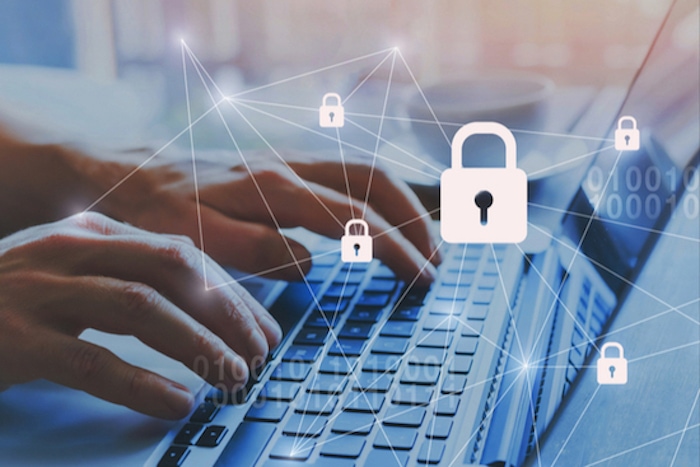Ever heard of bitcoin, the user-generated currency? Or cryptography, the digital technology used to code your data to keep it private and secure?
Both are directly related to blockchain technology.
Simply put, a blockchain is a set of data — time-stamped and carefully recorded — that is shared among computers and not owned by any single entity. Each piece of data is bound to all of the others, forming a secure and efficient chain. If someone tampers with a dataset, the entire chain is affected. Plus, everyone sees what you’re doing, so there’s very little room for shady business.
Blockchain’s applications are vast. While the financial industry has been the fastest to adopt blockchain-related processes, blockchain has the potential to revolutionize many other areas of the global marketplace. After all, every business has finances to manage. Many businesses also have complicated logistical processes such as distribution and shipping that could be enhanced with blockchain. Better yet, blockchain allows for rapid and secure communications worldwide, which is an ideal situation for global enterprises.
While blockchain is still an emerging technology, it already has profound implications for all types of businesses. Here are three examples of how it might impact yours.
1. Enhancing accounting roles
The accounting industry is naturally detail-oriented, which makes blockchain an ideal process for financial record-keeping. Many of these details can be offloaded to automation, thus allowing accountants to focus on the “big picture” of financial records and provide guidance on how a company can improve its bottom line.
Another great example of blockchain’s potential in accounting relates to the auditing process. Accountants know all about audits — those lengthy reviews where outside financial experts examine a company’s information for accuracy, including their double-entry bookkeeping.
According to Deloitte, blockchain could enhance the auditing process by ensuring a better set of records for audits with less complication. With both customers and sellers confirming transactions on a joint, blockchain-managed register, there will be a secure and nearly inalterable record of transactions. As a result, auditors will enjoy greater accuracy and more dependable accounting, not to mention additional time that can be used for other client-facing projects.
In addition, with computers handling more of the day-to-day work of accounting, accountants themselves will have more opportunity to work on trends, according to The Institute of Chartered Accountants in England and Wales (ICAEW). An accountant, for example, could examine blockchain-maintained information and compare the record to economic reality and valuation, helping companies get a better sense of their balance sheets.
2. Streamlining shipping
Since blockchain is designed to track data through a system, it can just as easily be repurposed to follow items in the real world. This will make shipping easier than ever to manage. In particular, blockchain can simplify international shipping, a complicated process that involves numerous loads, unloads, transfers, sign-offs, and approvals.
For example, IBM shows how an international flower shipper could use blockchain technology to streamline its entire shipping process from start to finish. Some of the immediate efficiencies provided by blockchain include:
- Better unit tracking: By adding shipment information to the blockchain, you can monitor a unit of flowers from the initial loading of the cargo to the unloading to the transport to the shop. This reduces the risk of losing perishable products in transit.
- Better approvals process: Currently, approvals and sign-offs can be very complicated, with hundreds of communications. A single lost form or late approval can delay the entire shipping process for months. In contrast, blockchain could obtain the approval data and automatically forward it to the appropriate people.
Greater efficiencies in both of these areas would ultimately save the flower shipper time and money.
Bloomberg makes similar observations, pointing out that blockchain will reduce the time spent filling out contracts, as well as the possibility of losing something important.
3. Providing consulting opportunities
If you’re looking for a high-growth sector in the consulting industry, blockchain may just be it. While people aren’t as enthusiastic about bitcoin now as they were a year ago, blockchain is now becoming more useful to companies interested in maintaining secure information. But how can a company implement such complex processes? This is why consulting is becoming more important in the blockchain field.
The complexity of blockchain means that consultants must be prepared to keep up with the technology. However, this is difficult because it changes so quickly, notes Dawood Khan in a 2017 publication of Certified Management Consultant (CMC)-Canada. Now more than ever, expert consultants are needed to assess the risks vs. benefits of blockchain, the types of blockchain that help organizations, and how to maintain consistent governance.
Consultants can best help companies toying with blockchain by carefully following four steps, says PricewaterhouseCoopers:
- Making a business case
- Building an ecosystem
- Carefully designing around rules and standards, and
- Staying up to date with regulatory requirements.
Most companies are likely to outsource these functions because blockchain is an emerging and rapidly changing technology. This means there is ripe ground for consultants to offer added value.
Making the most of blockchain
In a world where we constantly worry about drowning in paperwork or exposing ourselves to hacks, blockchain has the potential to take a lot of stress off our hands. With computers managing the movement and security of our information, business owners can now focus on other endeavors, like developing more efficient workflows or building stronger customer relationships.
Better yet — the potential doesn’t stop there. As blockchain technology evolves, its role in running all businesses will undoubtedly continue to grow.






